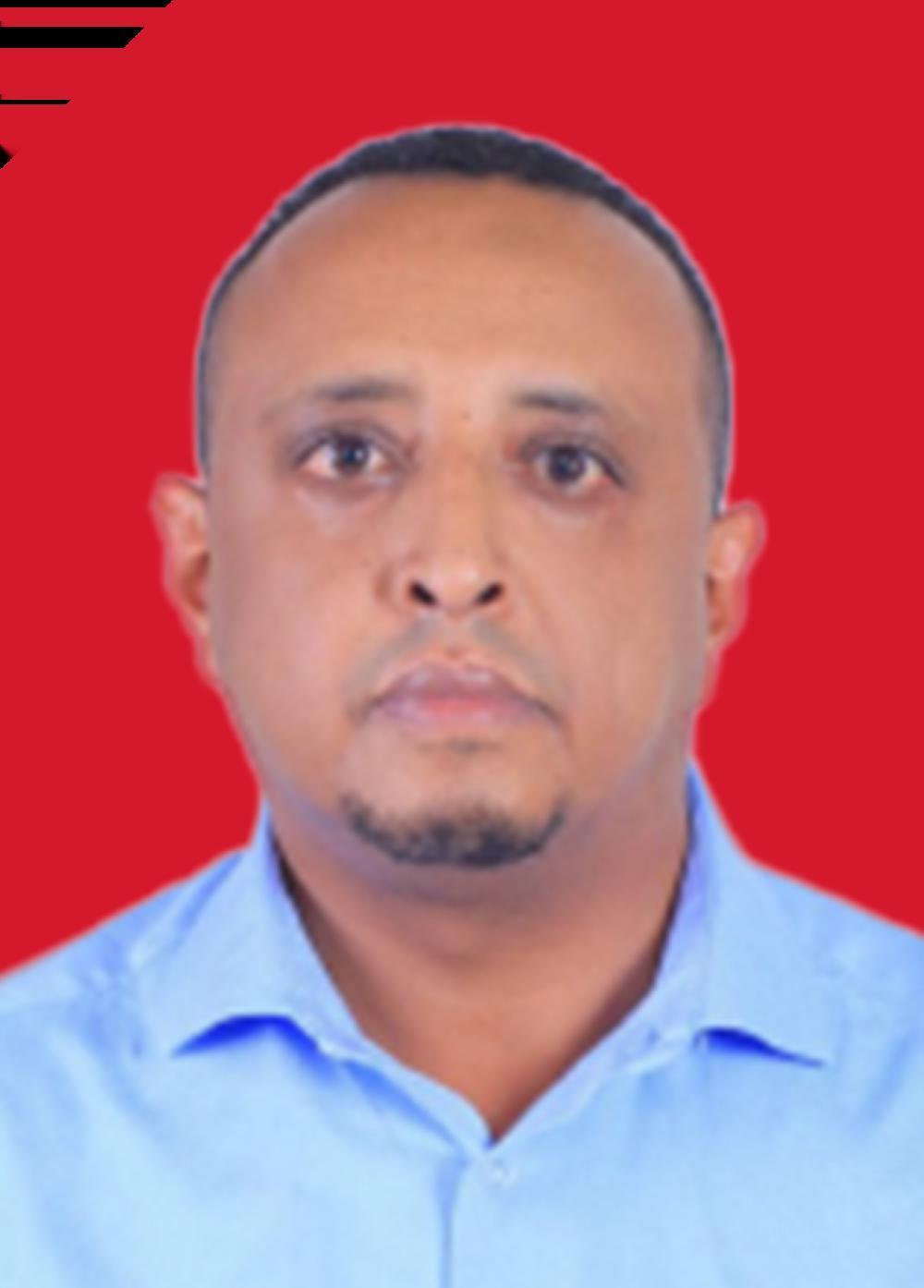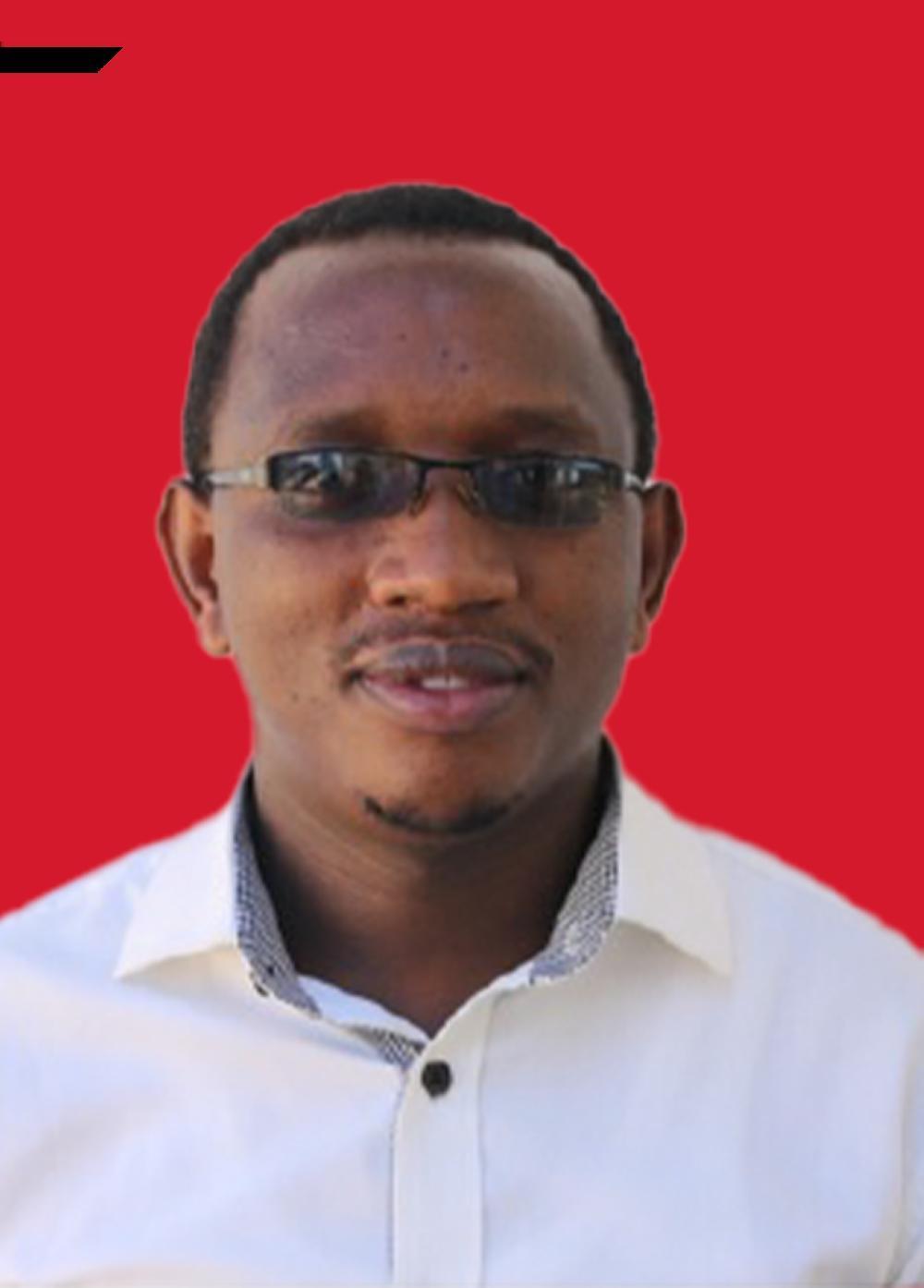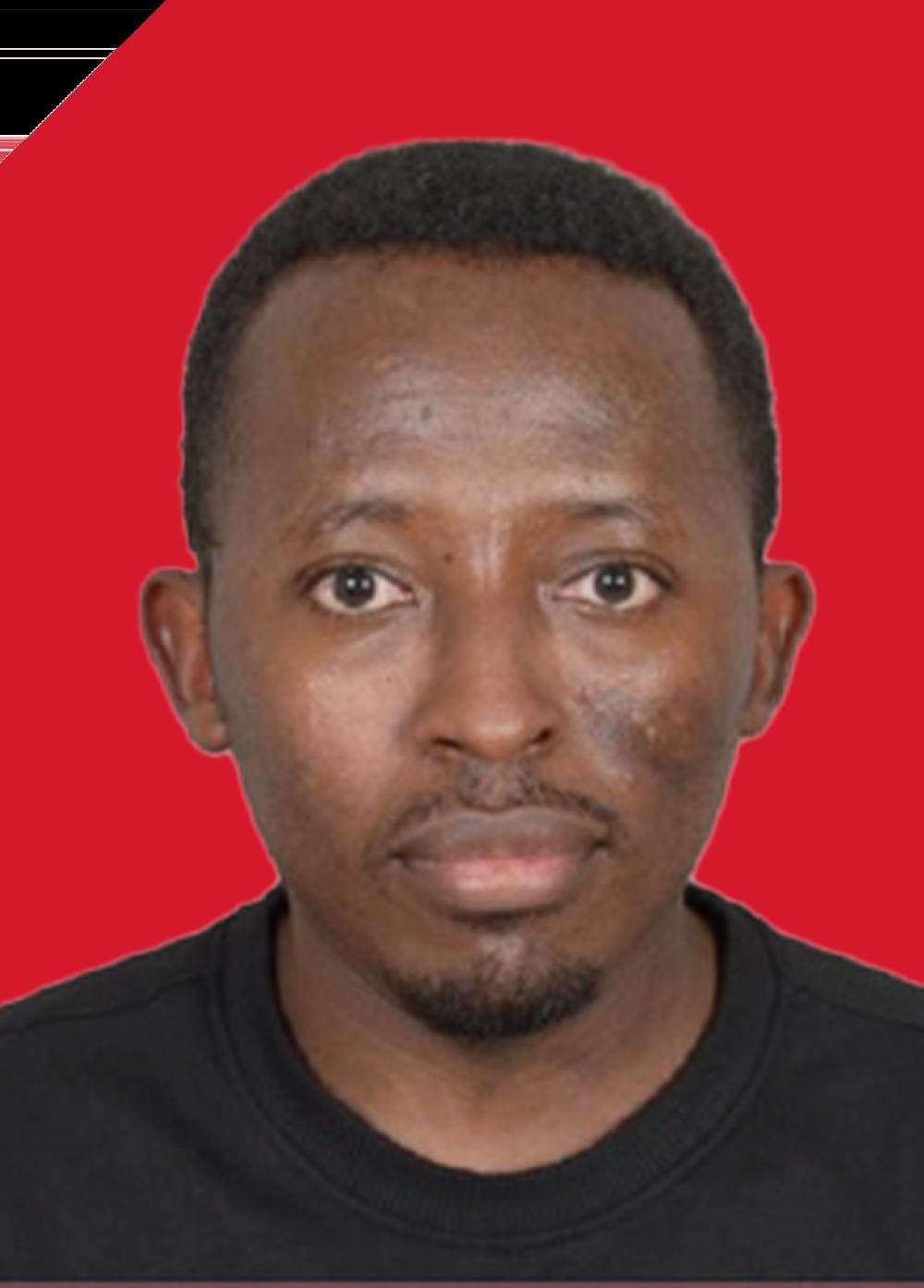Africa-Press – Rwanda. Etienne Sangano was diagnosed with Rheumatic Heart Disease (RHD) in 1999 after repeated visits to University Teaching Hospital of Kigali (CHUK). He had been experiencing symptoms such as shortness of breath, fatigue, joint pain, a persistent cough, and weight loss.
RHD is a condition that develops as a complication of untreated streptococcal infections, often starting from sore throats.
A doctor told him that treatment was possible, but not available in Rwanda at the time. Sangano was relieved to understand the cause of his symptoms but concerned because his family could not afford treatment outside the country.
In 2006, he received support from Partners In Health (PIH) and underwent heart surgery in South Africa. His mitral valve ( a valve in the heart that controls blood flow between the left atrium and left ventricle), which was no longer functioning properly, was replaced with a mechanical valve. Since the surgery, he has taken warfarin medication daily to prevent blood clots.
He must monitor his International Normalized Ratio levels each month to keep them between 2.5 and 3.5.
“If the level drops below 2.5, there is a risk of stroke, fatigue, and dizziness. If it rises above 3.5, there is a risk of bleeding, including nosebleeds or bleeding even while brushing teeth. For women, the use of warfarin during pregnancy requires medical supervision due to potential risks to the baby,” he said.
Sangano said that following medical instructions is essential for living well with a mechanical valve.
However, he has also experienced stigma and discrimination, especially from private institutions that are not familiar with RHD. Many post-operative patients face similar challenges, including emotional distress linked to unplanned pregnancies.
In 2024, he helped establish the Rwanda Cardiac Post-Operative Network (RCPN) to advocate for patients, raise awareness, and push for prevention. In Rwanda, heart diseases have become the number one cause of death, both in hospitals and in communities.
Recent data from the Rwanda Biomedical Centre (RBC) show that cardiovascular diseases account for 47.7 percent of deaths in health facilities and 59.3 percent of deaths that occur in the community.
“More people are dying from heart-related conditions than any other disease, and many of these deaths are preventable. Cardiovascular diseases refer to a group of disorders affecting the heart and blood vessels. In Rwanda, three main types are most common,” said Dr. Sincerejosue Ukuri, Cardiovascular Diseases Officer at RBC.
He added that the first is Rheumatic Heart Disease, which often starts in childhood as a complication of untreated sore throat infections. If not managed early, these infections can trigger an autoimmune reaction that damages the heart valves over time.
“Second are Cardiomyopathies, usually caused by long-standing high blood pressure that is not well controlled. This weakens the heart muscle, making it harder for the heart to pump blood.
“The third are Congenital Heart Diseases, structural defects of the heart that are present at birth. These are mostly diagnosed in children, though some are missed until later in life,” Dr Ukuri explained.
He added that the rising number of cases is mainly linked to changes in lifestyle. Unhealthy eating habits, physical inactivity, harmful use of alcohol, and smoking.
Low public awareness and limited access to early diagnosis and treatment are also part of the problem.
“Most people don’t know they’re at risk until they develop serious symptoms, by then, the disease is already advanced.”
This year’s World Heart Day, observed globally on September 29, is under the theme “Don’t Miss a Beat.”
“People are encouraged to get screened for key indicators such as blood pressure, blood sugar, cholesterol levels, and body mass index (BMI). In some cases, ECG or echocardiography is recommended, especially when symptoms or risk factors are present.”
Dr. Ukuri advises people to be alert to symptoms such as chest pain, shortness of breath, palpitations, swelling in the legs or ankles, fatigue, dizziness, or fainting, noting that if a person experiences any of these, they shouldn’t wait but go to the nearest health facility as early care makes a big difference.
“Cardiovascular diseases are dangerous, but they are preventable. We urge everyone to get checked, and take control of their heart health before it’s too late,” he added.
More than a Rwandan issue
Dr. Woldemariam Abiy Ephrem, a Cardiologist, at CHUK noted that recent data from the Pan-African Society of Cardiology (PASCAR) estimates that heart failure accounts for up to 30- 50 percent of all cardiac admissions in African hospitals.
Dr. Woldemari
He added that access to early diagnosis, long-term follow-up, and modern therapies are still limited in many regions, noting that patients typically present late, often in advanced stages,
Dr. Ephrem said the rise in heart failure across Africa is mainly caused by hypertension, which is often undiagnosed and poorly managed due to limited screening. Diabetes and obesity are also increasing causes, linked to changing lifestyles in urban areas.
Dr. Alain Prince Kubwayo, a cardiologist at CHUK, noted that in Sub-Saharan Africa, heart diseases are now happening more often than infectious diseases. He points to recent research showing that heart failure is behind 3 to 7 percent of all hospital admissions, and makes up about 30 percent of hospital stays related to heart problems.
Dr. Alain Prince Kubwayo
Dr. Kubwayo noted that heart failure in Africa is caused due to changes in disease patterns. He added that because surveillance systems are limited, the true extent of the problem might be even larger.
He added that new data shows that heart failure in Africa has its own unique characteristics compared to other regions.
Dr. Kubwayo urged early detection and regular screening for conditions like hypertension and diabetes, which increase the risk of heart failure.
“Educating patients about warning signs such as breathlessness, ongoing fatigue, and swollen legs is crucial. Investing in primary healthcare is another important priority, for instance, strengthening these systems would help detect conditions early, support long-term care, and improve access to treatment,” he stated.
Dr. Emmanuel Bizimana, a cardiologist in Kigali, said that diseases like diabetes and high cholesterol often develop silently, without obvious symptoms until serious complications arise. However, he noted that the focus should be on prevention by boosting primary healthcare, making medicines affordable, and expanding awareness and screening programs.
Dr. Bizimana Emmanuel
Dr. Saad Ngoga, a Cardiologist in Kigali explained that treatment doesn’t stop at the doctor’s office, noting that heart medications only work if they are taken.
Dr Saad Ngoga
“ Each year, cardiovascular diseases claim over 18 million lives globally. In many cases, these are patients diagnosed with conditions like high blood pressure, high cholesterol, heart failure, or arrhythmias, all of which require long-term treatment through prescribed medications,” he said.
Dr Ngoga said that recent studies show that only 41 percent of those with hypertension in Rwanda have it under control. Nearly half of heart patients stop taking their medicines within a year of starting them.
He said that many hospital visits could be avoided if people stuck to their medications, followed lifestyle advice, and kept up with their healthcare plans.
“Feeling better doesn’t always mean the disease is gone, so it’s important to discuss your symptoms and treatment plan with your doctor to ensure you both have a clear understanding of your health. Side effects can often be managed by adjusting the dose or switching medications, so avoid unnecessary self-medication.
“Managing multiple medications becomes easier with reminders, apps, pill organizers, or combined single pills, and involving family or friends can help keep you accountable. To reduce frequent clinic visits and long pharmacy trips, ask your doctor for prescriptions that cover 90-day supplies with refills,” Dr Ngoga explained.
Cardiologist Darius Dufatanye, noted that food should be medicine, recommending more fruits, vegetables, whole grains, legumes, nuts, and healthy fats, while cutting down on salt, sugar, processed foods, and red meat.
Dr. Darius Dufatanye
Dr Dufatanye advised reducing salt and saturated fats, avoiding processed foods and sugary drinks, limiting red meat, and staying hydrated with water.
Dufatanye said that 30 minutes of moderate activity most days like brisk walking, cycling, or swimming, can lower heart disease risk by up to 35 percent, adding that the benefits include better blood pressure, cholesterol control, weight management, stress reduction, and improved sleep.
For More News And Analysis About Rwanda Follow Africa-Press











